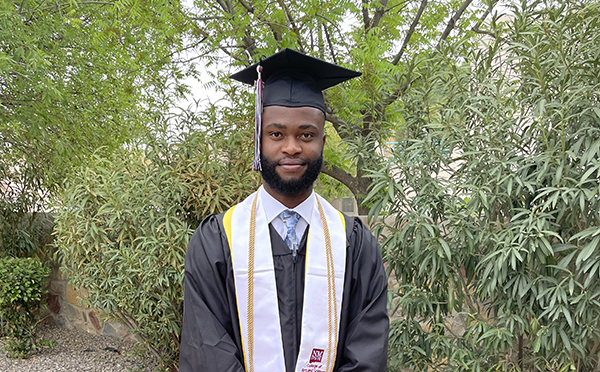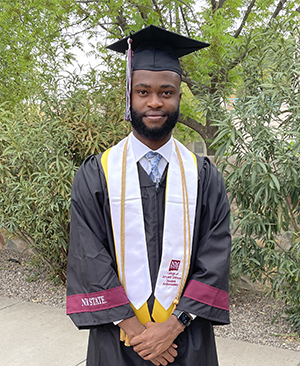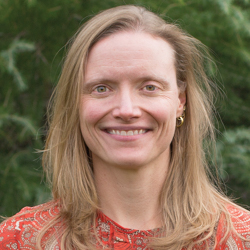Preparing for Disaster: UNM Hospital Participates in Region-Wide Emergency Training

Undergraduate Pipeline
Health Professions Students Learning to Combine Clinical Medicine & Research
Entering University of New Mexico medical student Theodore Muka has long been interested in medicine, but it wasn’t until his mother suffered a stroke that later took her life that he realized the impact the field can have on physicians, as well families.
“I was still in high school when my mother suffered a stroke and the doctor who treated her was a huge factor in my becoming a medical student,” says Muka, a recent graduate of New Mexico State University.
“He was an excellent doctor in providing the treatments my mother needed, but on top of that was the special way he interacted with my family. When she passed away, he came to me personally and did everything he could to answer questions, provide advice and comfort,” Muka remembers.
“Before my mother became ill, I liked the science aspects of medicine. Now I see that the human connection is what really makes it special,” he says.
Spending the summer of 2019 participating in the UNM Undergraduate Pipeline Network Summer Research Program (UPN) gave him ideas for how he can combine research and clinical practice once he becomes an MD, he says.
Muka is interested in cancer research and was excited to be placed in a lab where pediatric cancer research is being conducted at the UNM Comprehensive Cancer Center.
“The experience really made me realize I want to be able to combine those roles, to be a practicing physician involved in research,” he says.

I was still in high school when my mother suffered a stroke and the doctor who treated her was a huge factor in my becoming a medical student
“The 10-week program has students participate full-time in independent research projects, skill-building workshops and structured collaborative activities,” says Jennifer M. Gillette, PhD, associate professor and senior director for research in the UNM School of Medicine Department of Pathology and director of the UPN program.
Each undergraduate scholar has a faculty mentor who guides their independent research program. At the end of the 10 weeks, the students present their research project to the scientific community during the program’s competitive poster symposium.
In the classrooms and labs the students work with a host of people, from medical students to faculty members to lab techs, Gillette says.
“Each student has a mentor, but that is just the beginning of their experience,” she says. “Throughout the summer they are going to be interacting with various levels of lab staff, medical graduate students, medical students and pharmacy students. There are a lot of different trainees and labs and various levels.”
Students get to interact first-hand with researchers, Gillette says.
“Undergraduates can ask them questions like, ‘What does your day look like? What decisions did you make to get here?’ The variety of people they interact with shows them that there might be paths other than medical school that will take them to where they want to go,” she says.

The 10-week program has students participate full-time in independent research projects, skill-building workshops and structured collaborative activities
“We have people who come in to speak about things like how to create admissions personal statements, resumes. Most years we have also been able to do bonding activities outside of campus, like river rafting and hiking,” she says.
“It really is about skill building for students. What do they need to be successful?”
The number of students each year varies. There were 160 applicants this year from across the country. The program is funded in multiple ways. As an NMSU student, Muka’s participation was supported by New Mexicco IDeA Networks of Biomedical Research Excellence through a National Institutes of Health grant. The program – a partnership of public universities – seeks to build research and educational expertise throughout the state.
“Not only are we giving the students this wonderful exposure and experience, but it allows us also to bring outstanding students from across the state and across the country to UNM,” Gillette says. “It has been a great recruitment tool. At the same time, it has made for a really great experience for everyone.”
Muka agrees.
“I know I want to go into primary care, and I am really interested in pediatrics,” he says. “I want to stay in New Mexico. This has been a wonderful experience for me, and I want to give back as a practicing physician who also works in research.”